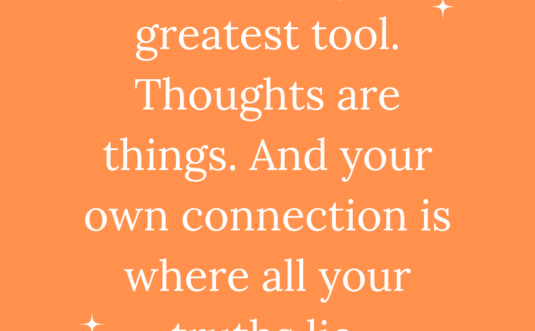What Does it Mean to Have an Abundance Mindset vs a Scarcity Mindset?
Here are some examples of abundance versus scarcity beliefs:
(Adapted from Discover the 7 Key Traits of an Abundance Mindset by Angelina Zimmerman)
1. Thinking Big vs Thinking Small
Those with an abundant mindset are renowned for thinking big. Scarcity mindset creates limitations in the mind which prevents the creation of grand goals.
2. Plenty vs Lack
Those with an abundant mentality believe there is plenty of everything in the world from resources, love, relationships, wealth and opportunities. They believe they can afford what they want in life and say exactly that.
3. Happiness vs Resentment
Someone with an abundant mentality is an optimist and is genuinely happy for others when they achieve success. Conversely, those with a scarcity mindset are competitive and resent other’s success.
4. Embracing Change vs Fear Of Change
A person with an abundant mindset understands that change is an integral part of life, they embrace and accept change. Appreciating the fact that change often leads to more positive outcomes, even if change is somewhat challenging or difficult to navigate.
Fear plagues those with a scarcity mindset. They will spend time constantly complaining along about change and take a longer period of time to accept change.
5. Proactive vs Reactive
Due to the positive attitude of those with an abundant mindset, they take a pro-active approach to life.
Rather than waiting for things to happen and then reacting like those with a scarcity mindset do, they strategically plan for the future and create strategies for the long-term.
6. Learning vs Knowing It All
7. What Is Working vs What Is Not Working
A person with a scarcity mindset selects negative thoughts and adopts a victim mentality.
The strong emotions they experience on a daily basis creates stress in the body with the range of emotions shifting from anxiety, fear, worry, anger and resentment. Their negative emotions, thoughts and beliefs create illnesses in the body leading to general poor health. Their daily focus is on ‘What is not working’.
What Does All Of This Mean?
Those with an abundance mindset are often visionaries and see the limitless possibilities in the world. Their focus in daily life is on ‘What is working’.
The path you have traveled thus far is not set in stone, such is the beauty of life you can change. Deciding to change paths is the first step.
Life is short, live large, believe in the endless possibilities life has to offer and choose to live an abundant life creating memorable moments you can cherish forever.
Our attitudes toward scarcity and abundance in other aspects of our lives greatly influence our success. Stephen Covey explains these concepts beautifully in his classic The 7 Habits of Highly Effective People. He writes:
Most people are deeply scripted in the Scarcity Mentality. They see life as having only so much, as though there were only one pie out there. And if someone were to get a big piece of the pie, it would mean less for everybody else.
The Scarcity Mentality is the zero-sum paradigm of life. People with a Scarcity Mentality have a very difficult time sharing recognition and credit, power or profit—even with those who help in the production. They also have a hard time being genuinely happy for the success of other people.
The Abundance Mentality, on the other hand, flows out of a deep inner sense of personal worth or security. It is the paradigm that there is plenty out there and enough to spare for everybody. It results in the sharing of prestige, recognition, profits and decision-making. It opens possibilities, options, alternatives and creativity.
Covey tells us that when you live in a world of scarcity, you compete for available resources, even when there is an abundance of them.
What Can You Do to Create an Abundance Mindset?
(Adapted from John C. Maxwell)
Offer words of appreciation. Let people know how much you value them. People want to know that they matter. Your influence and happiness will increase in direct proportion to the appreciation that you show to others and life. I have found this to be one of the fastest and simplest ways to build a more abundant life.
Choose to see opportunity. The next time your team is faced with an obstacle, flip it around and consider it an opportunity. Face the challenge with optimism and make sure your team sees you modeling that attitude. You’ll be surprised at how quickly problems dissolve and how soon optimism becomes your default mechanism.
Remind yourself that there is more than enough. As Covey said, there is enough pie to go around, so break that nasty habit of comparing yourself to others. Repeat after me: There is plenty for everyone. Say the sentence often enough, and it’ll become second nature.
Carefully select the company you keep. Mindsets are contagious. Limit your time with glass-half-empty people.
Spend time in reflection. Learn to acknowledge and appreciate all the positives in your life. Gratitude is a powerful aspect of an abundant mindset. A grateful heart is at the center of an abundant life. In his book, Life, The Truth and Being Free, coach and speaker Steve Maraboli says, “Those with a grateful mindset tend to see the message in the mess. And even though life may knock them down, the grateful find reasons, if even small ones, to get up.”
Give more of what you want. Although it may sound counterintuitive, one of the best ways to increase your abundance is to give. Don’t feel like you have enough time? Slip away from your obligations, even if just for an hour, to help someone in need. Don’t feel like you have enough money? Give to someone less fortunate. In other words, be a river, not a reservoir. Giving is sure to put you in a more abundant and appreciative frame of mind.
XO,
Dana




